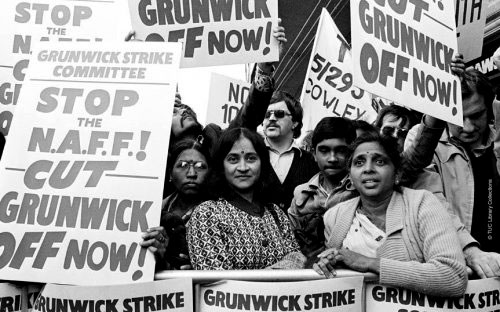
It is now just over 150 years since Engels wrote his celebrated work on The Condition of the Working Class in England. It was the first serious attempt to portray the appalling conditions in which the mass of the working class lived at that time, crowded into slum houses lacking any sanitation, always on the verge of starvation with no prospect of basic education for their children let alone health care. With today’s General Election focusing entirely on the concerns of the middle class, it is time to look at the impact of 18 years of Tory government on the condition of the working class.
Work
• Only 35% of the workforce is in full-time tenured work compared to 55% 20 years ago.
• Only 38% of new jobs between 1993 and 1996 were for full-time, permanent employees; in 1996 it was less than 30%.
• 1 million people have to hold down more than one job.
• 1 million people work as domestic servants.
Unemployment
• Unemployment now stands at 1.75 million, but this is the total after the Tories have changed the way it is calculated more than 30 times. The real figure, as defined by the Labour Force Survey which counts those without a job and who are ready to start work in two weeks, is 3.1 million.
• 3.3 million households, 20% of the total, are workless, compared to 1.2 million in 1979.
• 40% of all heads of households in Tyne and Wear, Merseyside, South Yorkshire and Wales are unemployed.
• 500,000 construction jobs have disappeared since 1990.
• The jobs taken by unemployed people pay on average £100 per week, a fall in real terms of 12% since 1979.
Pay
• In 1979 the top 10% of male employees earned on average 2.53 times the lowest 10%. The gap is now 3.73 to 1.
• 3.9 million workers earn less than £4.00 per hour, 1.5 million less than £3.25 per hour. 800,000 women workers earn less than £12.50 per hour. All categories are underestimates.
• 10 million people, 48% of all employees, earn less than £6.03 per hour (£228.68 per week), the current ‘European decency threshold’. This includes 49.5% of full-time women workers, 75.9% of part-time women workers, and 30% of full-time male workers.
Conditions and hours
• In 1979, workers qualified for full employment rights after six months. Now it is two years.
• 10 million workers lack such rights and can be sacked at will. This includes 4.5 million part-time workers.
• Two thirds of British workers work more than 40 hours per week, and a quarter more than 50 hours.
Housing
• 800,000 houses are empty; 100,000 of them are council or housing association-run. There are 200,000 homeless people.
• In 1977, 147,300 council houses were built. By the mid-1980s, this had fallen to an average of 20,000 units. No council houses were built in the last six months of 1996.
• Only 22% of the heads of council households are in employment. 38% of them are aged 65 or over.
• A parliamentary regulation has cut Housing Benefit for single people under 60 so that it covers no more than the rent of a single room in shared accommodation. This takes effect from October this year.
Children
• 31% of all children live in a household where there is no one in full-time employment, compared to 18% in 1979. Overall, 4.3 million children live in poverty although only 1.4 million children qualify for free school meals.
• 2 million children are to varying degrees malnourished. Anaemia is now widespread amongst working class children.
• Children from the poorest 10% of the population are twice as likely to die before the age of 15 as those from the richest 10%.
Health
• Life expectancy at birth is seven years longer for those in social class 1 (the richest) than those in social class 5 (the poorest section). This is equivalent to 42,000 more deaths for manual workers each year.
• Infant mortality is more than 50% greater for those in social class 5 than those in social class 1. This has remained unchanged for the last 15 years.
• Angina is twice as common among male manual workers as it is among male non-manual workers in middle age.
Old age
• Only 7% of all local authorities provide free home care service to all.
• The Law Lords have just ruled that home care services are not a legal obligation on councils.
• The average grant from the Social Fund for funerals has been cut from £924 to £791. A new change means that spending will be capped at £600, and will only be available where all the immediate family of the deceased are n benefit.
• In 1980, pensions were indexed to price increases rather than wage rises. If the link had been retained, the single pension would now be £82.55 rather than £61.55, and the married couples’ pension £132.10 instead of £97.95. The single pension is now 20.3% of average male manual earnings.
FIGHT RACISM! FIGHT IMPERIALISM! 136 ELECTION SPECIAL APRIL/MAY 1997




